-
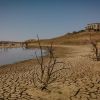 +10 +1
+10 +1'A war for water': Europe sounds the alarm on water stress ahead of another extreme summer
European lawmakers issued a stark warning about the region’s growing water crisis ahead of another extreme summer, saying there is a pressing need to tackle issues such as scarcity, food security and pollution.
-
 +17 +2
+17 +2‘I’m a prisoner in my own home,’ asthma sufferer, 15, tells landmark US climate trial
Mica, aged 15, learned about climate change at the young age of four, when his parents showed him the documentary Chasing Ice. “I understood it more than my parents thought I would,” he testified in a groundbreaking trial on Tuesday. “I just knew something bad was happening, but I didn’t know exactly what it was.”
-
 +20 +1
+20 +12 out of 3 North American bird species face extinction. Here's how we can save them
As the climate crisis worsens, so does pressure on wildlife. The number of birds in North America has declined by 3 billion in the last 50 years.
-
 +4 +1
+4 +1In a first, a climate lawsuit from young people is going to trial
Sixteen young people who say the state isn’t doing enough to address climate change will get their day in court Monday. The lawsuit argues that lack of action violates plaintiffs’ rights under the state Constitution. This is the first youth climate lawsuit to ever make it all the way to trial in the U.S.
-
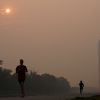 +18 +4
+18 +4The smoke is clearing over the East Coast—but Canada’s wildfire catastrophe is far from over
While headlines this week in the United States focused on historic levels of air pollution in major East Coast cities like New York and Philadelphia—which have not experienced air quality conditions this poor since the Clean Air Act was passed in 1970—in Canada, it was the unprecedented wildfires themselves that remained the primary worry.
-
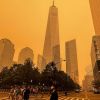 +25 +5
+25 +5Canada’s wildfire crisis could be a preview of the future
Don’t go outside. That’s what public health officials and medical experts have been advising tens of millions of people in the U.S. over the last couple of days as smoke from raging wildfires in Canada has drifted into the U.S., triggering air alerts and grounding flights across the Northeast, as far south as South Carolina and as far west as Minnesota.
-
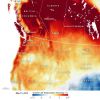 +19 +3
+19 +3Landslides associated with rapid snowmelt in western North America in May 2023
Several significant landslides associated with rapid snowmelt in western North America in May 2023, driven by exceptional temperatures.
-
 +33 +7
+33 +7To fight climate change, we've got to quit making so much plastic
A 75 percent reduction is needed to limit warming to 1.5 C, new report says.
-
 +26 +2
+26 +2It's not just climate – we've already breached most of the Earth's limits. A safer, fairer future means treading lightly
People once believed the planet could always accommodate us. That the resilience of the Earth system meant nature would always provide. But we now know this is not necessarily the case. As big as the world is, our impact is bigger.
-
 +15 +2
+15 +2A pledge to fight climate change is sending money to strange places
Rich countries promised $100 billion a year to reduce the effects of global warming. Reuters found large sums went to a coal plant, a hotel and chocolate shops.
-
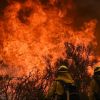 +13 +3
+13 +3Earth has been pushed past its safe limits for humans, scientists say
Humans have sent almost all planetary boundaries into risk zones, research finds
-
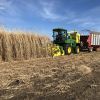 +4 +1
+4 +1Salting and burying biomass crops in dry landfills could economically capture greenhouse gases for thousands of years
Reducing global greenhouse gas emissions is critical to avoiding a climate disaster, but current carbon removal methods are proving to be inadequate and costly. Now researchers from the University of California, Berkeley, have proposed a scalable solution that uses simple, inexpensive technologies to remove carbon from our atmosphere and safely store it for thousands of years.
-
 +23 +4
+23 +4When will global warming actually hit the landmark 1.5 ºC limit?
There’s a 66% chance that the annual global average temperature will hit 1.5 ºC above pre-industrial temperatures at some time in the next five years, according to a World Meteorological Organization report released on 17 May. Reaching 1.5 ºC of warming in a single year will be a landmark moment for the planet, which in 2022 was about 1.15 ºC warmer than in pre-industrial times.
-
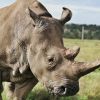 +15 +5
+15 +5Biodiversity: Almost half of animals in decline, research shows
A study led by Queen's University Belfast finds 48% of species are undergoing population declines.
-
 +15 +3
+15 +3How climate change is making our allergies worse
Between April and May, the birch pollen season is in full swing. Eyes water, throats sting, noses run: doctors call these immune reactions "allergic rhinitis." In France, nearly one adult in three is said to suffer from a pollen allergy, according to the French National Agency for Food, Environmental and Occupational Health Safety (ANSES).
-
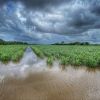 +4 +1
+4 +1Greenhouse gases have changed El Niño and La Niña, significant new study finds
CSIRO has found greenhouse gas emissions have likely been making El Niño and La Niña events more frequent and extreme since the 1960s. Up until now little was known about the role it played.
-
 +20 +3
+20 +3Air Pollution from Oil and Gas Production Contributes to Thousands of Early Deaths, Childhood Asthma Cases Nationwide
These health impacts affected communities in states with high oil and gas production, as well as states with limited or no gas activity, underlining the need for comprehensive regulatory action to protect Americans from the pollutants generated by this sector.
-
 +4 +1
+4 +1Population Decline Will Change the World for the Better
A future with fewer people offers increased opportunity and a healthier environment
-
 +21 +3
+21 +3Energy of '25 billion atomic bombs' trapped on Earth in just 50 years, all because of global warming
Global warming has trapped an explosive amount of energy in Earth's atmosphere in the past half century — the equivalent of about 25 billion atomic bombs, a new study finds. In the paper, published April 17 in the journal Earth System Science Data(opens in new tab), an international group of researchers estimated that, between 1971 and 2020, around 380 zettajoules — that is, 380,000,000,000,000,000,000,000 joules — of energy has been trapped by global warming.
-
 +17 +3
+17 +3Indigenous youths use tech as 'weapon' to protect Amazon
Her grandfather defended native lands in the Brazilian Amazon with bows and arrows. Today, the weapon of choice for Txai Surui and many young Indigenous activists like her is technology.
Submit a link
Start a discussion




















